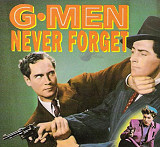 Yesterday I posted an entry detailing an enforcement proceeding by the Bureau of Industry and Security (“BIS”) against Washington-based Edco, Inc., where the agency extracted a fine from the company based on a highly dubious claim that Edco had “evaded” a General Denial Order imposed on Hong-Kong-based Sunford Trading Company notwithstanding that Edco had not itself violated any of the provisions of the order that were applicable to it. BIS also went after Mark Vorobik, the C.E.O of Edco, on the grounds that during the investigation he had made a false statement to government agents in violation of section 764.2(g) of the Export Administration Regulations (“EAR”).
Yesterday I posted an entry detailing an enforcement proceeding by the Bureau of Industry and Security (“BIS”) against Washington-based Edco, Inc., where the agency extracted a fine from the company based on a highly dubious claim that Edco had “evaded” a General Denial Order imposed on Hong-Kong-based Sunford Trading Company notwithstanding that Edco had not itself violated any of the provisions of the order that were applicable to it. BIS also went after Mark Vorobik, the C.E.O of Edco, on the grounds that during the investigation he had made a false statement to government agents in violation of section 764.2(g) of the Export Administration Regulations (“EAR”).
Allegedly he told the agents that he did not know that Sunford was on the Denied Persons List even though Sunford told him that they were. Settlement documents released by BIS reveal that Mr. Vorobkik was penalized $52,000 for this misstatement, of which half was suspended for one year on the condition that he commit no more violations of the EAR during that period.
Section 764.2(g) prohibits any from making
any false or misleading representation, statement, or certification, or falsify or conceal any material fact, either directly to BIS, the United States Customs Service, or official of any other United States agency, or indirectly through any other person … [i]n the course of an investigation
Like many other provisions of the EAR, this is not a model of drafting clarity. Although it forbids the falsification of a “material fact,” there is no materiality requirement for a “false statement.” In theory, you could be fined $250,000 for telling a BIS investigator that the sky is purple or that you are happy to see them. Materiality is important here because if Edco did not violate the Denial Order imposed on Sunford, this statement would not be considered material.
Another difficulty in misrepresentation cases is that the interviews are not recorded and so the entire case against the exporter is based entirely on the notes and recollections of the BIS agents. Even if the exporter did not make the representation, it will be difficult to overcome the contrary representations of the agents. Exporters always lose when it’s a matter of “he said, she said.” I sincerely doubt that Mr. Vorobik admits that he made this misrepresentation.
There is a lesson here for exporters when the friendly folks from BIS come knocking on your door, other than not to believe them when they tell you it’s a friendly visit. It almost never is.. If the government later claims you made false statements, you could be subject to enormous fines or even jail time under 18 U.S.C. § 1001 simply because the agents misheard or misunderstood what you said. So when BIS shows up, tell the agents that you will cooperate with their investigation but that to avoid any misunderstandings, you would like to have your lawyer involved. And don’t say anything else until your lawyer is involved because the agents are likely trying to build a case against you. Responses to BIS should be in writing so that there cannot later be any question about what you did or did not say in response to the questions from the investigator. This is the best procedure even if you are absolutely convinced that you did not do anything wrong.
 Permalink
Permalink
Copyright © 2010 Clif Burns. All Rights Reserved.
(No republication, syndication or use permitted without my consent.)

 Posted by
Posted by  Category:
Category: 

